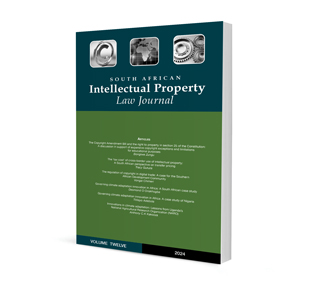Abstract
Die Suid-Afrikaanse padnetwerk verkeer tans in ’n haglike toestand as gevolg van langdurige pligsversuim van die South African National Roads Agency (SANRAL) en die padadministrasies van die provinsiale owerhede om die paaie onder hul beheer behoorlik in stand te hou. Na raming is daar deesdae nie minder nie as 25 miljoen slaggate in Suid-Afrikaanse paaie wat ’n groot bedreiging vir padverkeer inhou. Ofskoon die betrokke owerheidsliggame met verloop van tyd meganismes geskep het waarvolgens vergoeding betaalbaar is aan diegene wat nadeel gely het as gevolg van skade aan hul voertuie wat aan slaggate gewyt kan word, blyk daardie stelsel nie aan alle verwagtings te voldoen nie en kom dit toenemend voor dat veral diegene wat liggaamlike beserings weens slaggat-ongelukke opgedoen het, hulle na die howe wend.
In hierdie artikel word vyf resente uitsprake (van Februarie 2017 tot Maart 2024) onder die loep geneem – te wete die Markus-, Loots-, Van der Merwe-, Henson- en Jacobs-uitsprake – ten einde aan te toon hoe ons howe sake van hierdie aard benader. Die verweerders was in elk van die sake die lid van die uitvoerende komitee van die betrokke provinsiale regering (alle ongelukke het op provinsiale paaie voorgekom). Daar is deurentyd gepoog om ’n akkurate weergawe van die feite van elke betrokke saak te verskaf, onder meer deur die bewyse wat deur middel van getuies verskaf is bondig weer te gee, omdat dit in alle gevalle die hooffokus van die howe was.
Bepaaldelik wat betref nadeel (beserings sowel as vermoënsverlies) veroorsaak as gevolg van die feit dat ’n voertuig ’n slaggat getref het, bestaan daar ’n navolgenswaardige presedent van die hoogste hof van appèl in die uitspraak in McIntosh v Premier, KwaZulu-Natal (2008) waarin die hof nuttige riglyne verskaf het oor hoe ’n saak van hierdie aard benader moet word en veral klem daarop gelê is dat besondere aandag gewy moet word aan die bewys van onregmatigheid en skuld (nalatigheid) aan verweerderskant. Verder blyk dit dat dit deurlopend in sake van hierdie aard hoofsaaklik gaan om die vasstelling van nalatigheid aan die kant van ’n openbare liggaam wat versuim het om behoorlik beheer oor ’n gevaarlike toestand uit te oefen. Dit handel dus oor een van die geykte toestande waar ’n blote versuim (omissio) op onregmatige optrede kan neerkom, wat moontlik kan verklaar waarom die howe soms nagelaat het om in meer besonderhede na te gaan of daar aan die onregmatigheidsvereiste vir deliktuele aanspreeklikheid voldoen is. Waar hulle telkens ’n beslissing oor nalatigheid moes vel, het die howe soos klokslag gesteun op die presedent wat geskep is in Kruger v Coetzee (1966) waarin die drieledige toets vir nalatigheid noukeurig geformuleer is. Omdat die aanwesigheid van nadeel en (feitelike en juridiese) kousaliteit in al vyf gevalle voor die hand liggend was, is daar met ’n enkele uitsondering geen aandag daaraan geskenk nie.
In die ontleding van die uitsprake is daar veral gepoog om aan te toon hoe die howe te werk gegaan het om hul rationes decidendi te konstrueer en is daar tot die gevolgtrekking gekom dat hul metodiek meestal tekort geskiet het indien gemeet aan die riglyne voorgeskryf deur kundiges soos die destydse afgetrede hoofregter Corbett. Verder blyk dit ook duidelik hoe die toepaslike regsbeginsels nie deurentyd suiwer weergegee word wanneer dit op die feite toegepas is nie. Desnieteenstaande kan daar akkoord gegaan word met die feit dat die eisers in elk van die vyf uitsprake geslaag het.
Daar word verder oorweeg hoe die verskeie padadministrasies hul kan beskerm teen toekomstige vorderinge weens slaggat-skade. Eerstens blyk dit duidelik dat gebrekkige opdragte aan hul regsverteenwoordigers ’n probleem was, meestal weens die lakse houding van die betrokke amptenary. Dit kan reggestel word deur noukeurig rekord te hou van alle aktiwiteite wat met padbou, -instandhouding en -herstel te doen het, welke inligting noodsaaklik is om as grondslag vir ’n behoorlike verweer te dien.
Tweedens moet die amptenary van die administrasie daarvoor sorg dat die geld wat vir paaie begroot is, daarvoor gebruik word en ook in staat wees om behoorlik verslag daaromtrent te doen. Sodoende sou die verweer gegrond kon word dat die betrokke openbare liggaam alles in sy vermoë gedoen het om die paaie onder sy beheer in ’n veilige toestand te hou en daardeur die verwyte van ’n onregmatige versuim en nalatigheid kon vryspring. Derdens moet padadministrasies deur gereelde inspeksies altyd bewus wees van die toestand van paaie onder hul beheer sodat hulle betyds, waar nodig, herstelwerk kan aanbring of, tot tyd en wyl dit moontlik is, toepaslike waarskuwingstekens kan aanbring.
Ten slotte word die vraag gestel of dit vir ’n padadministrasie moontlik sou wees om aanspreeklikheid vry te spring deur die blote aanbring van vrywaringskennisgewings. ’n Toepassing van die geykte beginsels rakende toestemming tot benadeling as regverdigingsgrond en pacta de non petendo in anticipando skakel egter sodanige moontlikheid uit.

